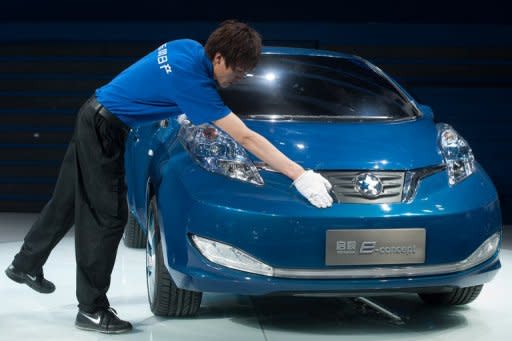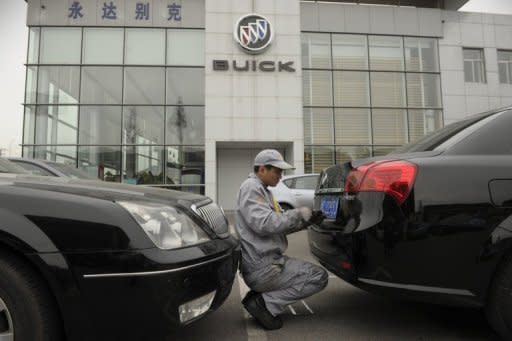Foreign carmakers 'pressed' to launch China brands
Foreign carmakers in China say Beijing is pressuring them to produce dedicated new brands so their local partners can gain technical know-how, but experts warn the strategy could backfire. The government, keen to boost the local automotive industry, has long required foreign companies looking to make cars in China to set up joint ventures with domestic manufacturers, many of them state-owned. In the past year, companies say they have also come under pressure from Beijing to launch brands specifically for the local market, even though there are no explicit rules requiring them to do so. "Many of our competitors that have not launched a dedicated brand have had the brakes put on their plans to develop manufacturing," said Maxime Picat, the director general of Peugeot-Citroen's Chinese joint venture. "We are putting together plans to launch our own brand, in line with what the government requires." Picat said Beijing had been reviewing the 20 years since international auto partnerships were authorised. "There has been very little transfer (of technology)," he added. Experts say there is a danger that by helping their Chinese partners gain access to technology foreign manufacturers could end up creating more competition for themselves at home. General Motors, the biggest foreign carmaker operating in China, was the first to fulfil the government's desire, launching its Baojun brand a year ago in association with its partner Shanghai Automotive Industry Corporation (SAIC). Volvo announced at this week's China Auto 2012 show -- the country's biggest -- that it was working on a new brand for the Chinese market, while Nissan used the expo to launch three electric cars under the new Venucia name. The Japanese company, which works with China's Dongfeng Motor Corporation, said it was important to be able to count on government help given the uncertainty of the electric car market in the world's second-biggest economy. "Foreign brands do not benefit from incentives, even if they are manufactured in China," Nissan's China public relations manager Shen Li pointed out. But experts warn that flooding the already crowded Chinese car market -- the world's biggest since 2009 -- with new logos could hit existing domestic car brands, which are already far less popular than their foreign competitors. "The overall idea of the indigenous brands is that they are catering to the needs of the less affluent in the inner provinces," said Klaus Paur, a Shanghai-based industry analyst with research firm Ipsos. "This goes directly into competition with the Chinese domestic brands, so overall these Chinese domestic brands are as a group losing market share." Some foreign players, such as Ford, have so far held back from launching dedicated Chinese brands. Ford vice-president Joe Hinrichs told journalists at the auto show the company was carefully watching the progress of the joint-venture brands, but had no current plans to launch one itself. "We believe that the Ford brand has even more potential to offer value products," he said.



